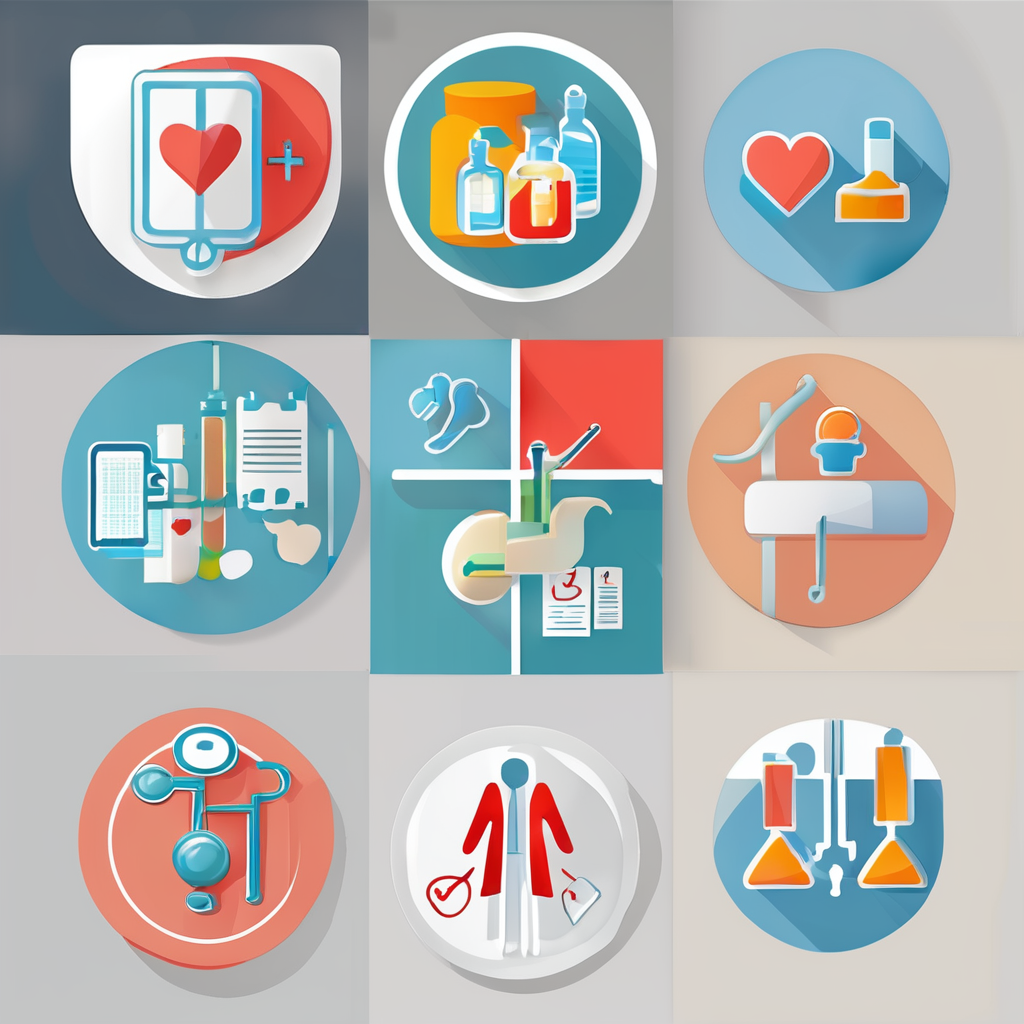Overview of Smart Inhalers
Smart inhalers represent an evolution in asthma management, utilizing innovative technology to enhance patient care. These devices integrate digital features with traditional inhalers to track medication use and improve adherence. Unlike traditional inhalers, smart versions link to mobile apps, providing data on usage patterns that empower both patients and healthcare providers.
A key feature of smart inhalers is their real-time feedback, which alerts users if doses are missed. This immediate notification system helps to maintain proper asthma control, significantly reducing the likelihood of exacerbations. Additionally, these devices collect valuable usage data, facilitating personalized treatment plans tailored to individual needs.
Also to read : Powerful Breathing Techniques to Soothe Asthma Symptoms in Kids: Relief Through Respiratory Exercises
The integration of modern technology presents a considerable advantage over traditional options by promoting patient engagement and accountability. By receiving instant feedback, patients are more informed about their condition, assisting in better self-management. Furthermore, the data gathered can pinpoint triggers and patterns, leading to improved preventive measures.
In modern asthma care, the smart inhaler’s role is pivotal. By providing insights into medication adherence, they enable proactive adjustments in treatment, resulting in better-controlled asthma and improved health outcomes. As technology progresses, smart inhalers are expected to further transform asthma management, emphasizing the importance of such technological advancements in everyday medical practices.
Also to see : Exploring the Cardiovascular Perks of Routine Tennis: How Regularly Hitting the Court Boosts Your Heart Health
Mechanisms of Action
Smart inhalers revolutionize asthma care by employing advanced technology to monitor and manage medication use. A crucial feature is the ability to track medication usage and adherence. By integrating sensors, these devices capture data every time an inhaler is used, recording the precise time and dosage, thus enabling patients and healthcare providers to ensure consistent treatment adherence.
The real-time feedback systems embedded within these inhalers are game-changing. Users receive immediate alerts if a dose is missed, allowing them to engage more actively in their health management. This feature not only improves adherence but also empowers patients with timely insights, reinforcing better asthma control.
Beyond reminders, smart inhalers utilize data analytics to assess patterns over time. This analysis aids in identifying potential triggers and deviations in usage that could indicate worsening conditions. The ability to pinpoint these changes allows for preemptive measures, enhancing the overall efficacy of asthma management plans.
Integration with mobile apps and devices adds another layer of sophistication. These apps sync with the inhaler to compile comprehensive usage reports that are easily accessible to both patients and healthcare providers. This facilitates continuous monitoring and can be instrumental in optimizing individual treatment plans, enhancing patient outcomes.
Benefits for Patients
Smart inhalers offer numerous advantages, enhancing both patient engagement and education. These devices provide real-time insights, allowing patients to understand their medication use and improve their asthma management. With improved feedback, individuals can be more proactive, reducing exacerbations and maintaining effective disease control.
One core benefit of smart inhalers is the significant improvement in asthma control. Enhanced monitoring through smart technology informs patients of missed doses, supporting consistent medication adherence. This consistency helps manage symptoms better and reduces the risk of asthma attacks. Increased awareness of triggers and usage times also aids in developing preventive strategies.
In terms of patient outcomes, the evidence is compelling. Various case studies show that individuals using smart inhalers experience fewer hospital visits and improved overall health. These devices track medication adherence and usage trends, which help in personalizing treatment plans that meet the unique needs of each patient, ultimately improving life quality.
Finally, smart inhalers boost patient confidence in managing asthma effectively, allowing them to feel empowered in their healthcare. With continuous advancements in technology, the scope for further improvement in patient outcomes is vast, making smart inhalers a transformative tool in asthma care.
Impact on Healthcare Providers
Smart inhalers revolutionize patient-provider communication by enabling seamless data sharing. These devices record detailed usage statistics, allowing healthcare providers to access real-time information about a patient’s medication habits. This data facilitates informed discussions, leading to more precise treatment adjustments and fostering a collaborative approach to asthma management.
Healthcare providers benefit immensely from the clinical insights offered by smart inhalers. By analyzing collected data, providers can identify patterns that suggest non-adherence, potential triggers, or exacerbations. This informed insight supports timely interventions, ensuring that patients receive optimal care. Moreover, case studies demonstrate how this data-driven approach reduces unnecessary hospital visits and improves patient outcomes, showcasing the practical benefits for medical professionals.
Notably, the use of smart inhalers streamlines routine consultations and follow-ups. Providers can quickly review a patient’s inhaler data ahead of appointments, allowing for more focused and productive conversations. By eliminating guesswork in assessing medication adherence, healthcare providers can tailor interventions more effectively.
Ultimately, the adoption of innovative technology like smart inhalers empowers healthcare providers with tools to enhance patient care and treatment outcomes. The alignment of technology with clinical practice signifies a transformative shift in the standard of asthma management, benefitting both patients and providers alike.
Regulatory Considerations
Smart inhalers are at the forefront of innovative technology, yet they must navigate a complex regulatory landscape to reach patients effectively. Current regulations for these devices are governed by various health authorities that ensure safety, efficacy, and quality. These frameworks are crucial as they establish standards that smart inhalers must meet before entering the market, ensuring that new technologies provide genuine benefits without compromising user safety.
One significant aspect of smart inhaler regulations is the approval process, which evaluates both the inhaler and its integrated digital components. This dual scrutiny can affect the speed at which these products become available to consumers, influencing their adoption rates. Regulatory bodies also assess data privacy standards due to the nature of personal health information collected by these devices.
Healthcare policies are adapting to incorporate smart inhalers, aiming to balance innovation with public health needs. As regulations evolve, they will likely impact the availability and usage of smart inhalers, fostering advancements within the industry while ensuring compliance with medical guidelines.
Future directions in regulatory frameworks may focus on streamlining the approval processes and enhancing international collaboration, which could expedite the availability of next-generation inhalers. These efforts emphasize the pivotal role of regulation in transforming asthma management through smart inhalers.
Cost Implications
Smart inhalers, with their innovative technology, do come with higher initial costs compared to traditional inhalers. This cost difference is attributed to the digital components and the data analytics capabilities integrated within these devices. While the starting expense may be greater, evaluating the long-term cost-effectiveness is crucial. Over time, the benefits from improved adherence and reduced healthcare costs, through fewer doctor visits and hospitalizations due to better asthma control, can offset initial expenses.
Affordability remains a significant factor for many patients. The insurance coverage for smart inhalers is evolving, with some providers beginning to recognize their potential in improving patient outcomes and thus offering better reimbursement options. However, insurance coverage can vary widely, which poses a challenge for widespread adoption. Patients need to verify with their insurers about the extent of coverage for smart inhalers, as policies differ.
The financial dynamics within asthma management are shifting, as more health systems see the value of investing in preventive technologies. As insurance providers increasingly acknowledge the importance of smart inhalers, expanded coverage should follow, making these advanced devices more accessible to a broader population. The potential for reduced long-term costs emphasizes their role in future healthcare solutions.
Future of Smart Inhalers
The future of smart inhalers is set to be transformative in asthma management, with technological advancements continuously pushing the boundaries of what these devices can achieve. Next-generation inhalers are expected to incorporate cutting-edge innovations, further enhancing their functionality and effectiveness in treatment.
One major trend is the potential integration of smart inhalers with other health technologies. This could include connectivity with wearable devices and health monitoring systems, providing a comprehensive overview of a patient’s respiratory health. Such integration would allow for more seamless health management, fostering a holistic approach to tackling asthma.
Continuous improvement in smart inhaler design is essential. Companies are focusing on refining device usability, ensuring they remain accessible and user-friendly for various populations. This may involve developing inhalers with enhanced sensors and improved real-time analytics to facilitate better adherence and personalized treatment.
In terms of future trends, we anticipate a shift towards inhalers that can predict asthma attacks before symptoms emerge. These predictive capabilities, combined with AI and machine learning technologies, could revolutionize preventive care, enabling timely interventions that significantly improve patient outcomes. By staying ahead with these advancements, smart inhalers will undoubtedly become even more vital in managing asthma effectively.

